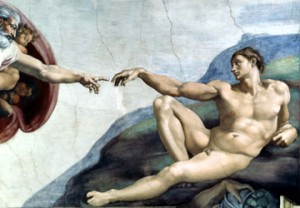Sometimes the Bible is startlingly relevant. In a recent podcast, writer and blogger Michael Hyatt pointed out the practical wisdom shared in the 18th chapter of Exodus, where Moses receives instruction from his father-in-law Jethro.
Let us recall the context: Moses had led the people out of Egypt and across the Red Sea. Since then, he had been overwhelmed with his responsibilities. In particular, he acted as the judge and jury for the entire people.
He personally settled all the disagreements and disputes that arose 600,000 Israelites marching with him through the Sinai desert. It was draining him.
A New Plan
During a visit with his father-in-law Jethro, Moses shared his frustration.
Jethro responded to him with very specific instructions: 1) Recognize that this pattern of leadership is not sustainable, 2) Focus on the actions that only you are capable of doing, 3) Set up a system to delegate the rest, and 4) Help those to whom you delegate grow in wisdom and leadership.
Moses takes up Jethro’s advice. In fact, Jethro’s spirit seems to shape Moses through the rest of the bible. He becomes humble and empowering toward those around him.
God Delegates Care of the World
As I thought about this story, I realized that it also conveys a deeper spiritual truth. Delegation is not just something we do to others. It is something God does to us.
After creating the world, God delegated responsibilty for sustaining it to us. The Jewish sages made this clear in a story they told about Adam, the first human being.
In this story, God takes Adam on a walk through the Garden of Eden. God points out all the different fruits and trees and says to Adam, “See how beautiful are My works. All that I have created I made for you. But be careful that you do not ruin my world, for if you do, there is no one else to put right what you have destroyed!”
In other words, God created the world. We have the responsibility to maintain it.
To receive Rabbi Moffic’s weekly digest of Jewish wisdom, click here.


